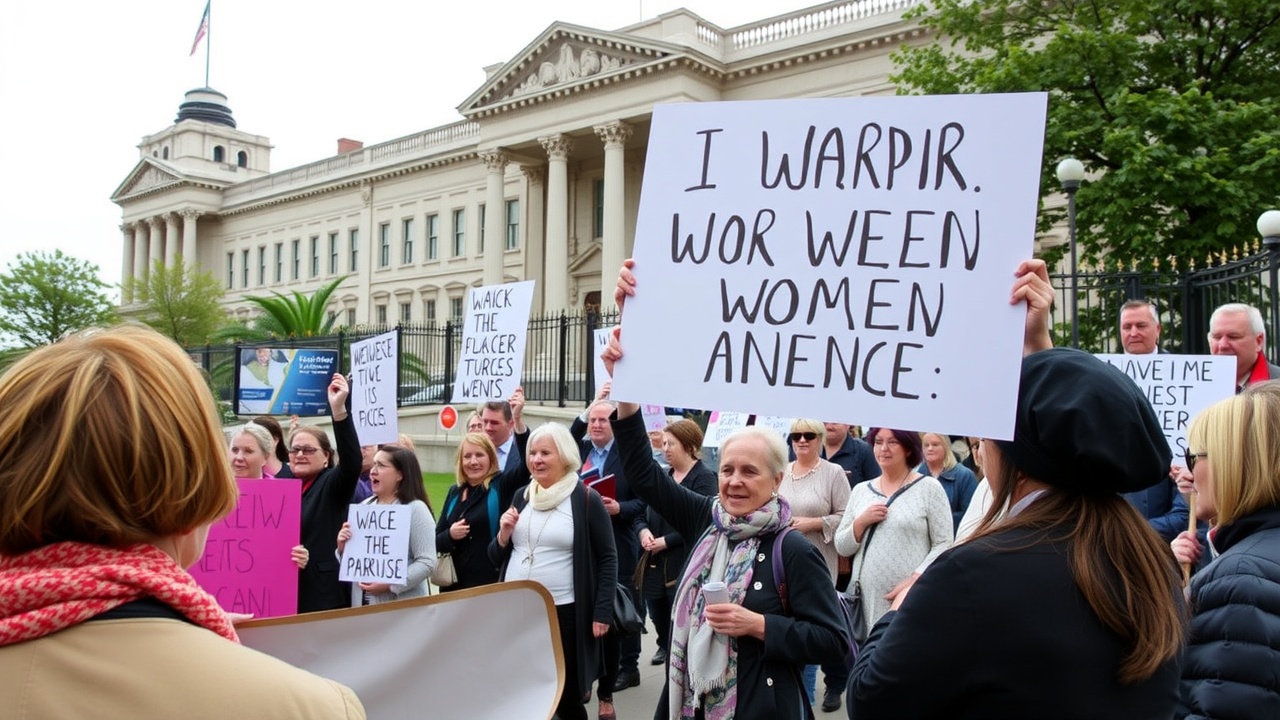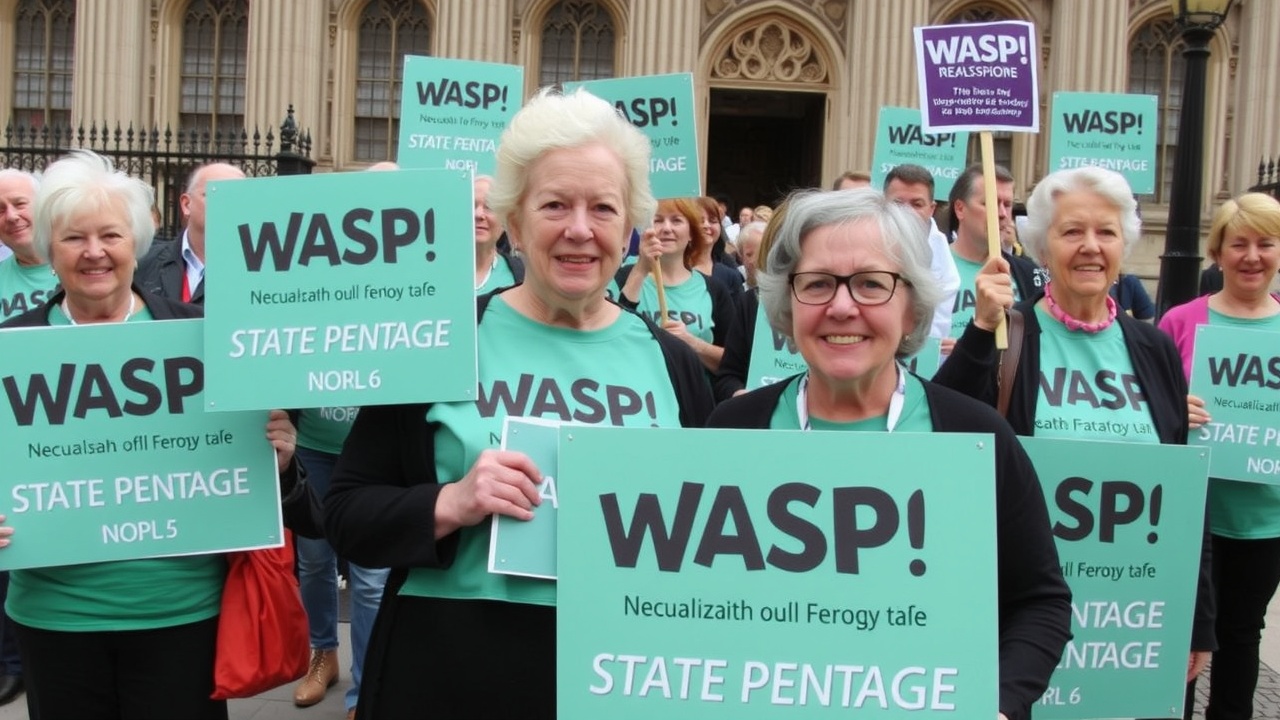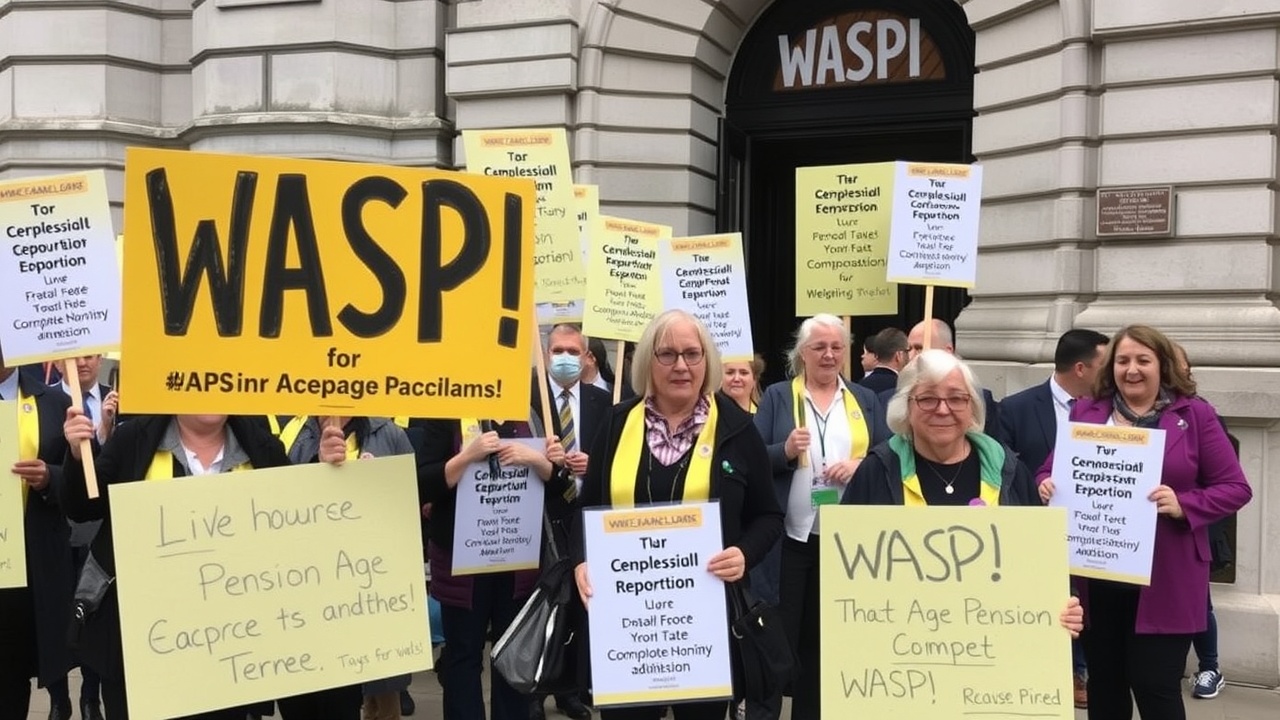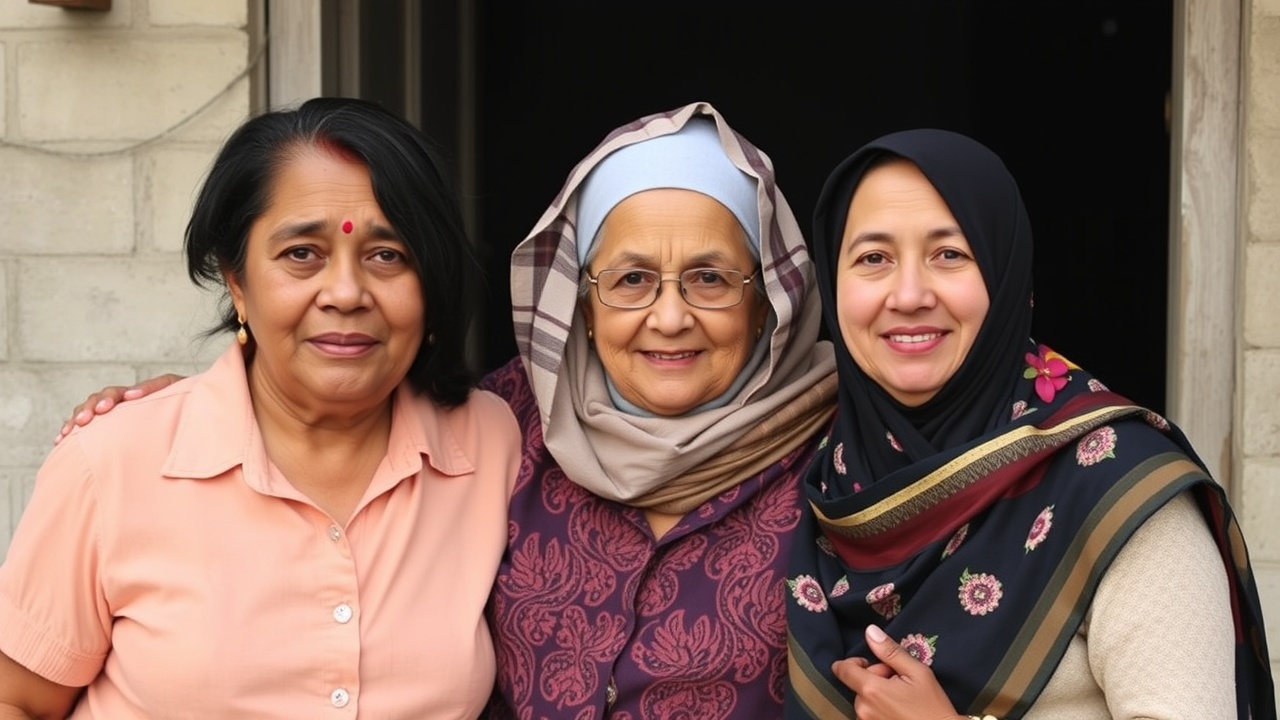
As the state pension age increased, many women born in the 1950s received unfair treatment
The "Waspi" campaign group has been advocating for restitution for years; we go over their progress thus far and discuss whether they will eventually get some funding.
In their battle against the government for compensation for raising their state pension age, the Women Against State Pension Inequality (Waspi) group has gained legal protection after the High Court ruled to limit the campaign's liability for Department for Work and Pensions (DWP) defense costs.
In the event that the legal battle over raising the state pension age fails, both parties will be protected by the DWP's agreement to a costs capping order. According to the agreement, the government's liability for Waspi's legal expenses is capped at £90,000, and Waspi's liability is limited to £60,000.
The announcement has been hailed by Waspi women as a "major milestone" in their struggle to get a more favorable government response to the Ombudsman's compensation proposals for women born in the 1950s. Campaigners emphasize that the order does not lower the case's actual legal expenses, which will be significantly higher.
"This agreement represents a significant advancement in our legal campaign," stated Angela Madden, chair of Waspi. We ran the actual risk of going bankrupt without this protection, or of being effectively silenced by the prospect of hundreds of thousands of pounds in government legal bills.
"We now have the assurance we need to continue, but the expenses of pursuing this case are still very high. Although it takes time and forensic presentation of our evidence, which is expensive, our knowledgeable legal team is demonstrating that they can and do defeat the government.
"This is the battle of our lives, and without the public's help, we cannot prevail.
A senior High Court judge named Justice Swift declared earlier this month that the Waspi case is "arguable" and "ought to be considered at a final hearing." If Waspi prevails in court, ministers may be called upon to reconsider their stance on compensation.
The Parliamentary and Health Service Ombudsman (PHSO) decided in favor of the Waspi group last year after years of advocacy, and they demanded that the women receive compensation. Nevertheless, the government has not yet promised to make the payment.
The government's denial of the PHSO's compensation recommendations, even though the minister acknowledged that there had been maladministration, will be investigated in the ongoing Waspi judicial review.
A representative for the DWP stated: "We don't comment on ongoing litigation. We are sorry for the 28-month wait for our letter to women born in the 1950s. However, we have chosen not to provide compensation because we disagree with the Ombudsman's approach to injustice or remedy.
Can you explain the Waspi campaign?
Ten years have passed since the Waspi campaign group was founded to voice opposition to the state pension age changes.
In order to bring women's pension age into line with men's, it was progressively raised from 60 to 68 between 2010 and 2018.
The women who were impacted, primarily those who were born in the 1950s, claim that the changes were made abruptly and that many of them are now struggling financially.
Waspi has conducted protests, lobbied ministers, and even started a judicial review of an ombudsman's investigation into how women were informed about their state pension eligibility. Nevertheless, they have not yet been paid.
The campaign organization asserts that 380,000 Waspi women have lost their lives since 2015 and that the "injustice" may impact 3 to 6 million women.
Could this year, however, see some progress? Last year, a member of parliament introduced a bill proposing a compensation plan that would provide impacted women with payouts of at least 10,000. A general election followed, though. And the government rejected compensation after Labour took power, despite encouraging statements made by Sir Keir Starmer in opposition. Thus, the ongoing legal battle between Waspi women and the DWP.
We describe the current Waspi journey and potential future developments.
What led to the Waspi campaign?
Up until 2010, men could start receiving their state pension at age 65, and women could start at age 60.
Between April 2010 and 2020, the government announced that women's state pension age would be raised to match men's, gradually increasing from 60 to 65.
It then expedited those changes, allowing both men and women to make their first state pension claim by December 2018. It was 66 by October 2020.
Waspi claims that some women were left in the dark about the swift changes because the Department for Work and Pensions (DWP) did not adequately communicate them.
Many women planned their entire lives around when they believed they would receive their state pension, but this was later shown to be false, leaving them in financial hardship as they waited longer for their pension.
"This is a very difficult situation in that equalizing the state pension age for men and women is the right thing to do, but it's fair to say that many women were taken unaware of the change," says Helen Morrissey, head of retirement analysis at the wealth manager Hargreaves Lansdown. Since many women had little time to get ready for what turned out to be a huge financial hole, the government's choice of communication regarding these changes has drawn criticism.
Although a large number of Members of Parliament have backed the Waspi campaign, ministers have consistently rejected any compromises, including a one-time payment or compensation to cover the difference between the change in their state pension age.
The Ombudsman's inquiry.
An independent body that investigates complaints made to government agencies or the NHS, the Parliamentary and Health Service Ombudsman (PHSO), looked into how the pension age changes were implemented.
Early in its investigation in 2021, it claimed that the DWP had "failed to make a reasonable decision about targeting information to the women affected by these changes." Maladministration was the cause. Additionally, it found that the DWP had "failed to act promptly" in sending the women a letter.
In March 2024, the PHSO released a report concluding that the DWP had engaged in "maladministration," bringing an end to its investigation. "Accurate, adequate and timely information about areas of state pension reform" was something that the DWP had not done, according to the Ombudsman's report. Additionally, it expressed worry that the DWP failed to admit its mistakes or provide solutions.
The Ombudsman has therefore urged Parliament to obtain up to 10p5 billion in funding. In contrast to the 10,000 some Waspi women had hoped for, this would enable a payout of between 1,000 and 2,950 for the impacted women.
A 2006 survey revealed that too many women still believed their state pension age was 60, according to the PHSO, which also claimed that the DWP did not take any steps to guarantee that messages regarding the state pension age reached the appropriate individuals.
Nevertheless, the ombudsman's recommendations are not legally enforceable. The ombudsman may report to a parliamentary committee, and a parliamentary vote may be held if the DWP decides not to follow them.
A former pensions minister and partner at consultants LCP, Steve Webb, tells BFIA: "The ombudsman's job is to determine whether people lost out due to poor administration. From the beginning of this process, he has made it clear that he respects parliament's authority to determine state pension ages and that he cannot override it.
As a result, any recommendations are likely to center on the possibility of developing a very limited redress scheme that might only apply to people who lost out as a result of decisions made without sufficient notice and who were not aware of the changes to state pension ages.
For instance, a 58-year-old woman may have given notice at work, expecting to receive her state pension in 18 months, only to learn that she would need to wait an additional three to four years. She was unable to regain her previous position and never worked again. Webb claims that her loss was a direct result of the poor management.
But he goes on to say: "It would be very difficult to create such a scheme, and the DWP would probably oppose such a recommendation."
This year's election could be advantageous for Waspi women if there is a parliamentary vote. It would be detrimental to their chances at the polls if MPs were perceived as voting against the ombudsman's recommendation.
In spite of this, the election may cause a delay in the establishment of a compensation plan, which could be carried over into the next administration. Therefore, redress is likely to remain a distant reality even if it appears to be a possibility.
According to former pensions minister Ros Altmann, she hopes the matter "will not drag on much longer." When Waspi served as the pensions minister in 2015 and 2016, she persistently lobbied the baroness. Since leaving the government, she has advocated for women who are impacted by the state pension age's sharp rise.
At the very least, Altmann tells BFIA, "I had always hoped we could get help to the women who suffered, those who made plans based on incomplete or misleading information, and those who are caring for others with little or no income."
"I worry that most impacted people would not accept this, but I would be thrilled if the Ombudsman did suggest universal compensation for all. However, I am one of those women who, knowing what I know, would not want to accept anything myself.
MP demands restitution of 10,000.
A bill proposing a compensation plan for women born in the 1950s who were impacted by the state pension age increase was introduced by an MP in February 2024.
The government should provide compensation payouts of at least 10,000, according to Scottish National Party politician Alan Brown.
As part of a 10-minute motion in the House of Commons, he stated: "These women were about to retire when they received the shocking news that their state pension age would rise from 60 to 66, and it was too late to make any appropriate financial preparations.
Brown went on: "It's unbelievable that the ombudsman has yet to recommend a solution nearly three years after the maladministration assessment.
The Waspi women's need to appear in court to reveal the shortcomings in the second ombudsman report is a scandal in and of itself. A long time ago, this procedure ought to have been concluded.
According to him, a Level 6 band with payouts of 10,000 or more would be "most appropriate" in terms of compensation, but a minimum Level 5 banding of the Parliamentary and Health Service Ombudsman remedy scales should be used.
Brown proposed modifying the non-dom tax status and capital gains tax rates as a means of financing the compensation plan.
Critics counter that such a universal payment plan would not differentiate between those who were aware that their state pension age was increasing and those who were not adequately notified by the DWP and suffered as a result. In addition, the cost would be enormousbillions of pounds.
Morrissey observes: "I also believe that many of the impacted women would view the 10,000 figure as insufficient, as they feel their loss is much greater.
The government has consistently opposed the idea of providing compensation, she continues, "and I would expect them to continue to do so." Any compensation plan's mechanics could also be complicated: would only those who had suffered the most financial hardship be eligible, or would all the women in that cohort be, in which case the expense would be enormous?
According to the DWP: "The government made the decision to equalize the state pension age for men and women more than 25 years ago. Since 1995, both the High Court and the Court of Appeal have upheld the DWP's policies under succeeding administrations, and the Supreme Court denied the claimants' request to appeal.














Leave a comment on: Waspi women: the judicial review case eliminated the threat of "financial ruin"